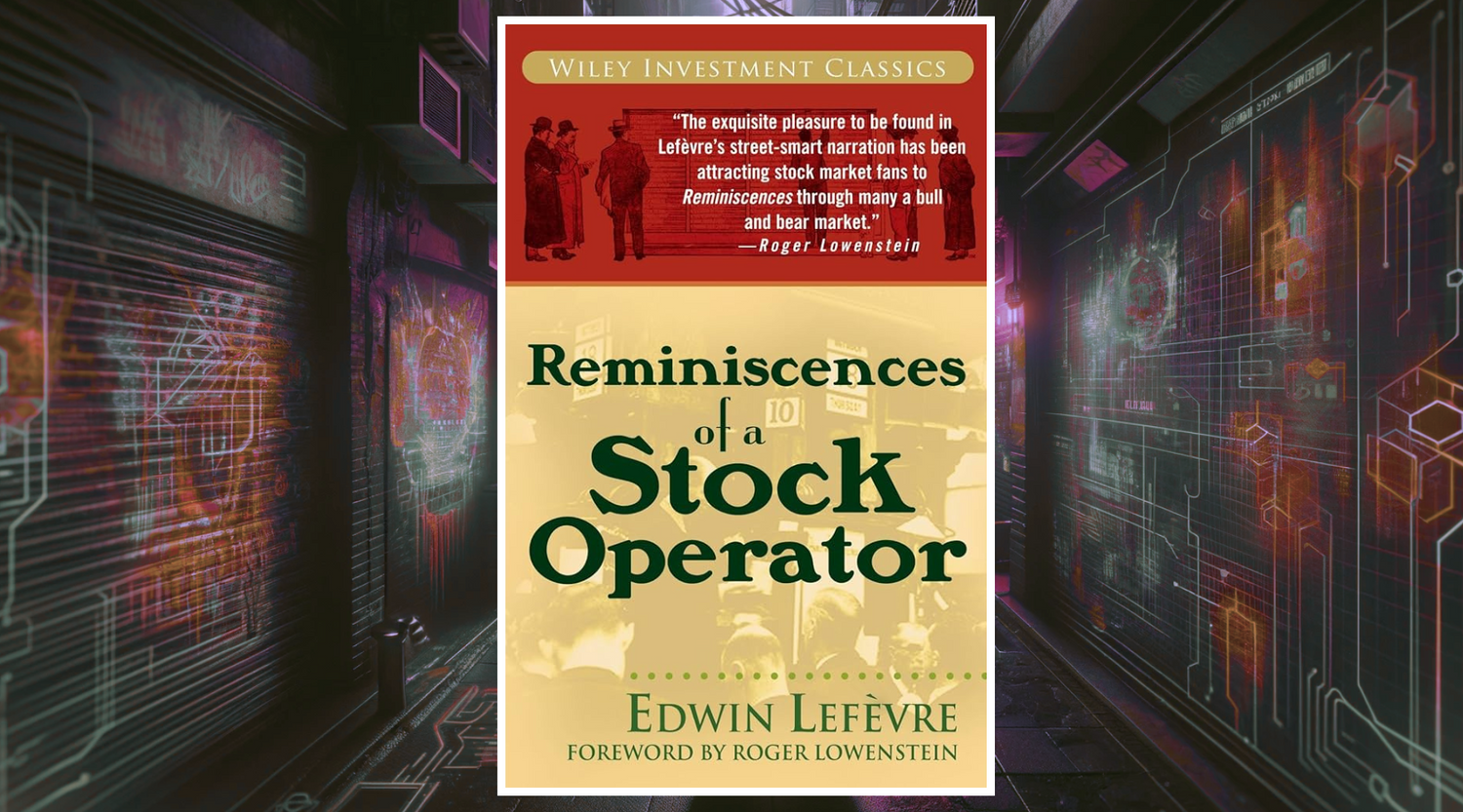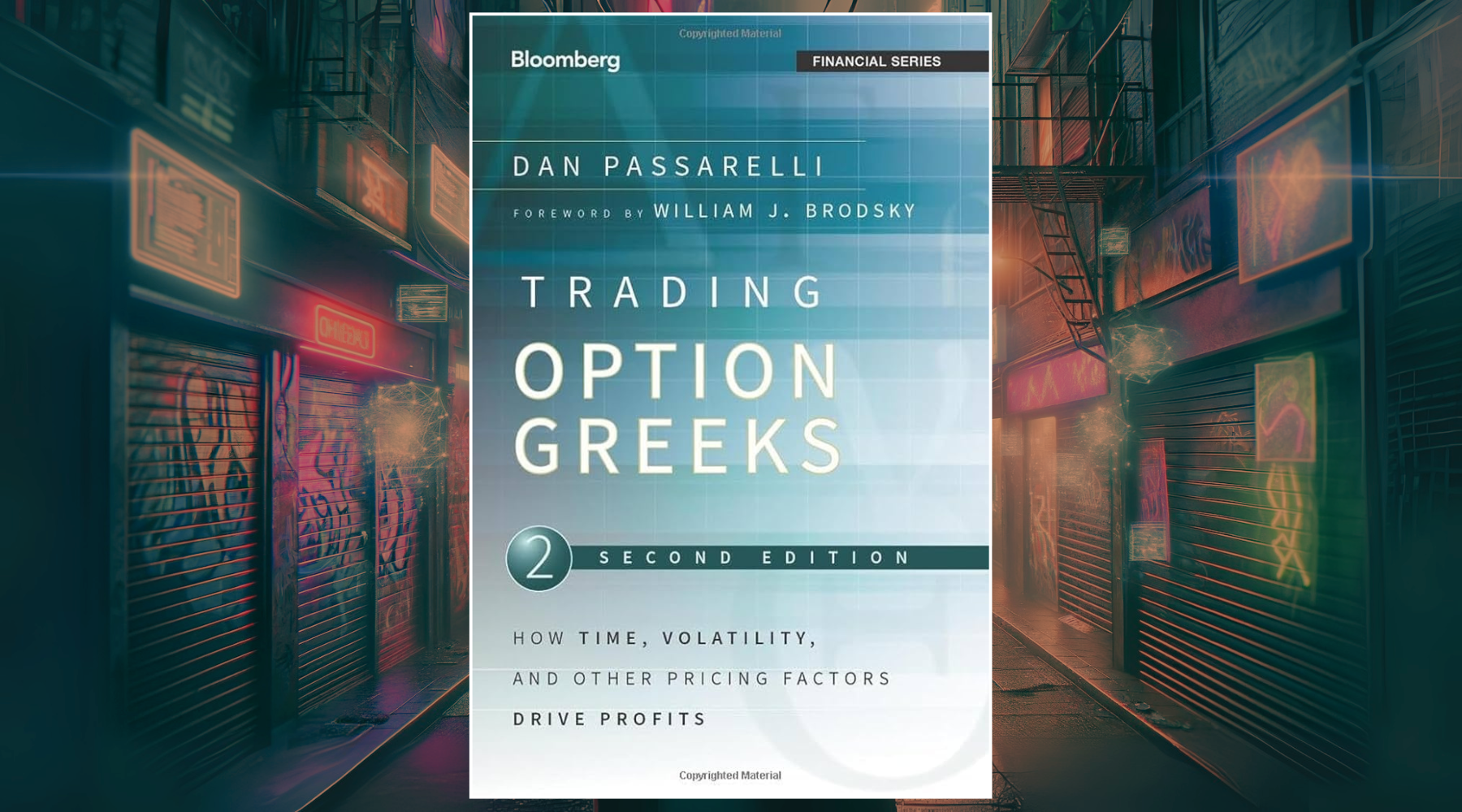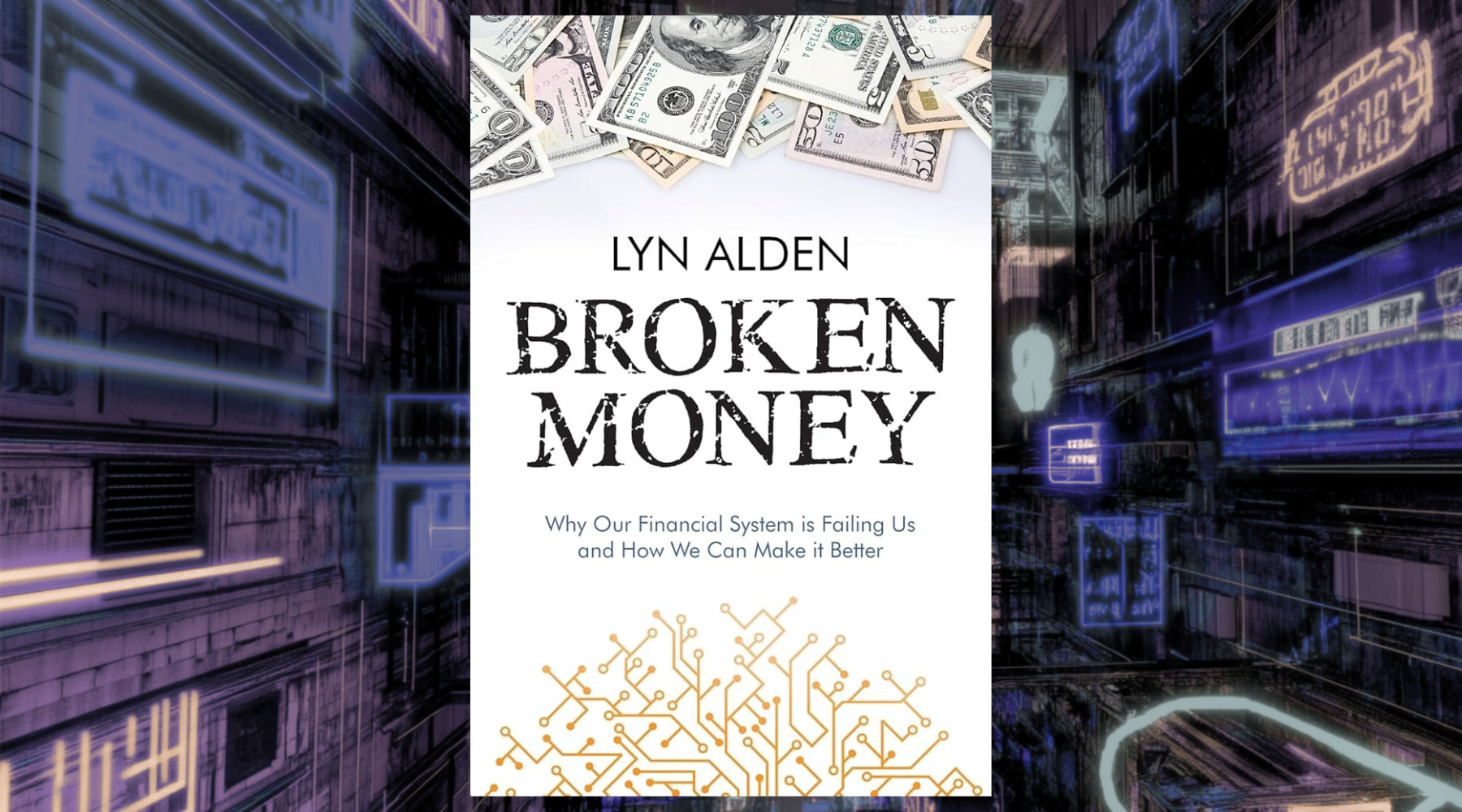Reminiscences of a Stock Operator
Book Summary & Review
Reminiscences of a Stock Operator is a book from 1923 by Edwin Lefèvre. It tells the story of Larry Livingston, a made-up name for the real-life trader Jesse Livermore. It shows the wild ups and downs of a famous trader from the early 1900s.
The book reads like a novel, and I think it does a great job blending in financial wisdom and trading insights that are better understood through a story instead of a textbook style.
Larry starts as a young kid watching stock prices on ticker tapes in bucket shops. These were places where people bet on stocks without owning them. He gets really good at guessing price changes and starts to master the art of scalping. He gets so good at this he ends up being banned from the bucket shops and moves to Wall Street to trade for real. But his life isn’t easy, he makes tons of money and then loses it all, even owing over $1 million at one point. He learns that his biggest problem really isn’t the stock market.

Market Manipulation
This was my favorite topic that was commonly brought up in the book.
The book talks about how some traders, including Larry, push stock prices up or down on purpose. This was common back then with rich traders who had a lot of power.
“Sometimes, after you have taken all the stock that is for sale, it pays to rush up the price sharply, to have what might be called little bull flurries in the stock you are manipulating. It is excellent advertising, because it makes talk and also brings in both the professional traders and that portion of the speculating public that likes action. It is, I think, a large portion. I did that in Imperial Steel, and whatever demand was created by those spurts I supplied. My selling always kept the upward movement within bounds both as to extent and as to speed. In buying on the way down and selling on the way up I was doing more than marking up the price: I was developing the marketability of Imperial Steel.” ~ Edwin Lefèvre, Reminiscences of a Stock Operator
And now for my favorite quote from the book. Larry Livingston’s (Jesse Livermore) explanation of stock manipulation:
“There is no question that advertising is an art, and manipulation is the art of advertising through the medium of the tape. The tape should tell the story the manipulator wishes its readers to see. The truer the story the more convincing it is bound to be, and the more convincing it is the better the advertising is. A manipulator to-day, for instance, has not only to make a stock look strong but also to make it be strong. Manipulation therefore must be based on sound trading principles.
The word "manipulation" has come to have an ugly sound. It needs an alias. I do not think there is anything so very mysterious or crooked about the process itself when it has for an object the selling of a stock in bulk, provided, of course, that such operations are not accompanied by misrepresenta-tion. There is little question that a manipulator necessarily seeks his buyers among speculators. He turns to men who are looking for big returns on their capital and are therefore willing to run a greater than normal business risk. I can't have much sympathy for the man who, knowing this, nevertheless blames others for his own failure to make easy money. He is a devil of a clever fellow when he wins. But when he loses money the other fellow was a crook; a manipulator! In such moments and from such lips the word connotes the use of marked cards. But this is not so.” ~ Edwin Lefèvre, Reminiscences of a Stock Operator
Reminiscences of a Stock Operator
The legendary trading classic inspired by Jesse Livermore's extraordinary market career. Discover timeless lessons on market psychology, tape reading, and the emotional discipline required for trading success. A must-read masterpiece that has influenced generations of traders and investors.
View on AmazonTrading Advice From The Reminiscences of a Stock Operator
After eventually getting to the point where he was over $1 million in debt, he started to realize that his trading problems weren’t with reading the tape, but that they were with himself and reading his own mind. Here's a few trading tips I took away from this story:
When you’re wrong, take the loss
After a few losses, Larry learned that he has to take the loss when he is wrong instead of holding out hope on the position. Some occasions he realized he was way off and so he got out and then even went the other way on the trade.
“Losing money is the least of my troubles. A loss never bothers me after I take it. I forget it overnight. But being wrong–not taking the loss–that is what does the damage to the pocketbook and to the soul.” ~ Edwin Lefèvre, Reminiscences of a Stock Operator
Don’t trade on other trader’s tips or alerts
One of the themes of the book is to never trade on tips from others. Trust in your own process. Larry had to learn the hard way to trust his own ideas and plans instead of listening to others.

Learn from losses
Big losses can become expensive lessons, but without learning from it, it will still just be a large loss on a road to many more large losses.
“Money losses have never worried me in the slightest. But other troubles could and did. I studied my disaster in detail and of course found no difficulty in seeing just where I had been silly. I spotted the exact time and place. A man must know himself thoroughly if he is going to make a good job out of trading speculative markets. To know what I was capable of in the line of folly was a long educational step. I sometimes think that no price is too high for a speculator to pay to learn that which will keep him from getting the swelled head.” ~ Edwin Lefèvre, Reminiscences of a Stock Operator
Understand the trend leaders and laggards
During a bull market, don’t buy the laggard stocks just because they feel cheap. During a ball market, you want to buy strong stocks, and the lagging stocks would be a good short when the overall market looks like it’s turning around.
My Thoughts on Reminiscences of a Stock Operator
Reminiscences of a Stock Operator is a classic trading book and is often the book I hear being recommended to traders. Although I do recommend this to traders, I don’t think it’s a book that would help a lot of new traders. You probably need some time in the markets to get a better feel for the intricacies of market manipulation and emotions from trading before this book will have much impact on you. But once you’re an established trader this is probably worth rereading every 4 or 5 years. It’s an epic tale (if there is such a thing) of a trader’s journey, and it is a one-of-a-kind book for traders that are usually reading more technical information.
If you've made it this far, I'd recommend checking out my book summary and review of The Snowball: Warren Buffett & The Business of Life. It's another epic tale of one of the greatest American trader/investor's. Although Jesse Livermore and Warren Buffett have completely different styles of trading, they both are legendary in their own style.










2 comments
Great book! I’ve read it twice already, and this summary really refreshed my memory. Love your website, man it feels like a hidden gem! :P{
Laza
Awesome, this is the first book I read when I got into daytrading. Didn’t really help me much but it was still worht the read!
John
Leave a comment
This site is protected by hCaptcha and the hCaptcha Privacy Policy and Terms of Service apply.